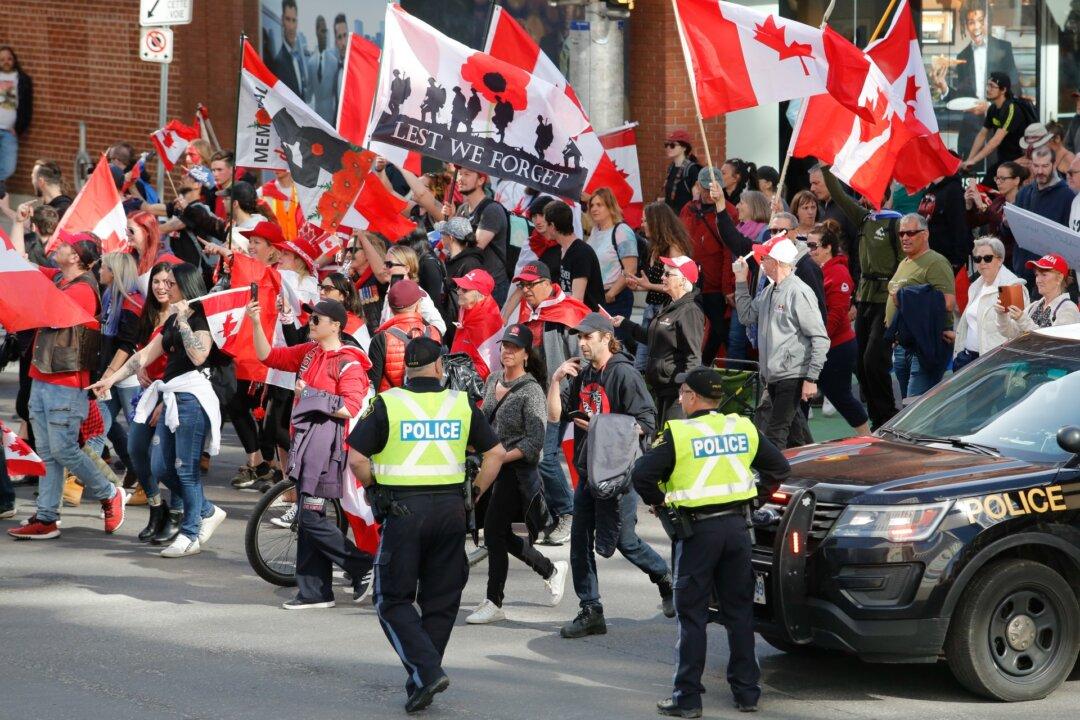Restrictions on freedoms in Canada, such as freedom of speech and assembly, have been steadily increasing for years now, says Philip Carl Salzman, professor emeritus of anthropology at McGill University.
“They’ve turned up the heat under the water, and it’s gotten warmer and warmer,” he told The Epoch Times. A lot of Canadians have gotten used to the heat and aren’t reacting strongly, Mr. Salzman said, but we’re starting to see signs of resistance boiling up.





